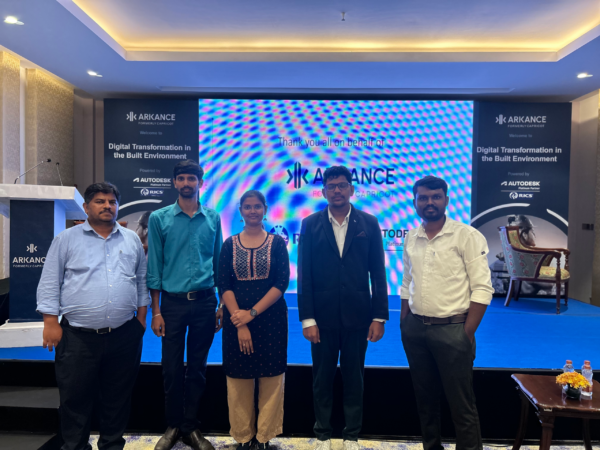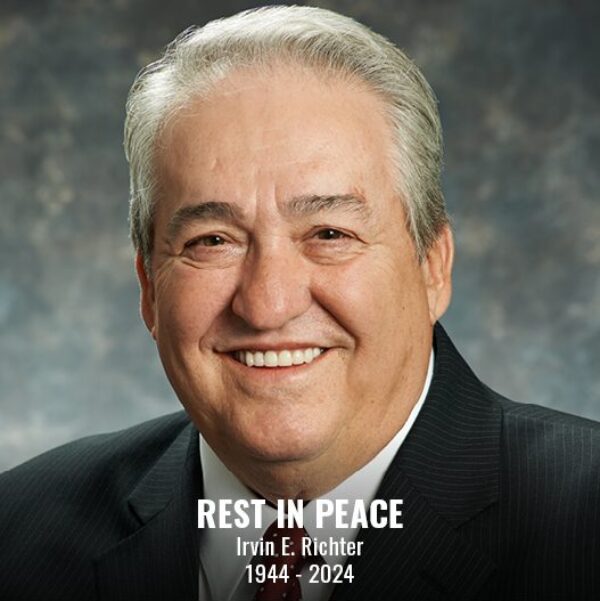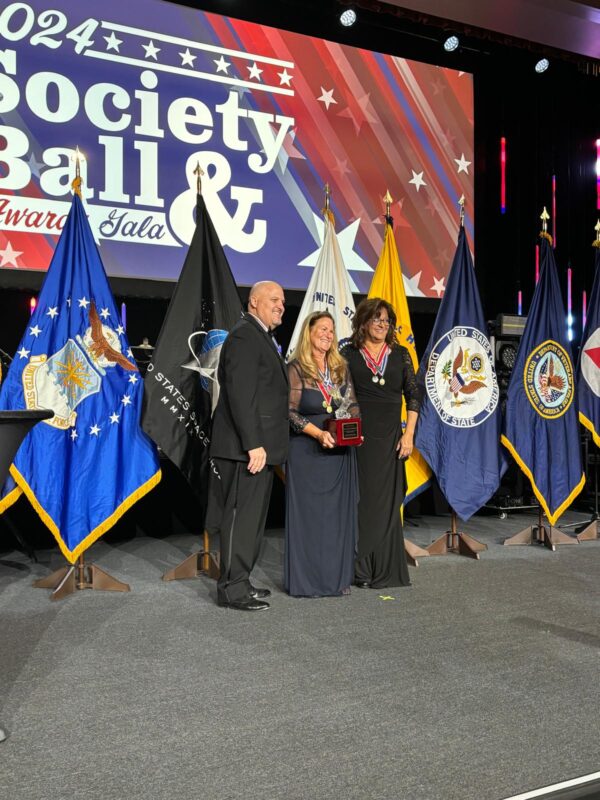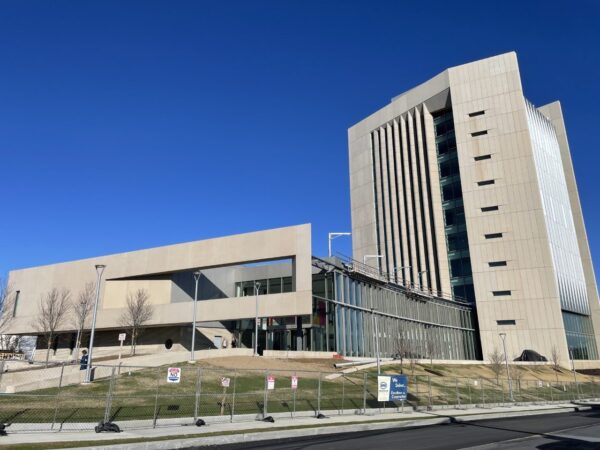
July 15, 2024 | Articles
Construction’s Digital Transformation & The Tools of Modern Project Management

Bill Mueller, Hill International’s Health, Safety and Environment (HSE) Manager, brought a few things with him when he came to Hill. Along with plenty of ideas relating to safety management and improvement, Mueller also brought—and carries with him every day—a grim reminder of just what’s at stake if he or others lose sight of the importance of safety and health, even for a moment.
Mueller carries color copies of an overturned roller. The operator of the roller was killed when the heavy rig overturned. Had the driver been strapped in, using his seatbelt, Mueller laments, he may have survived. “I keep this with me to remind me of what’s important,” Mueller said.
Mueller has nearly 30 years of experience in safety and health. Six of those years were spent in Brazil, where he learned to speak fluent Portuguese and honed his skills on an international stage. He resume includes work for such global companies as Lockheed Martin, General Electric, Dow Chemical, Foster Wheeler and URS, among others.
As Hill’s HSE Manager, Mueller is responsible for reviewing and enhancing Hill’s safety procedures—procedures and protocols that help keep its 4,500 employees throughout the world safe in their offices and on jobsites. It’s a big, complicated undertaking, and encompasses safety issues that range from simple ergonomics to all-out risk.
“I was brought on board to focus on what Hill is doing and what hazards Hill is exposed to,” Mueller said. “It’s all about less accidents and less risk, and preventing loss to what I call the five Ps: people, property, planet, process and profit.”
His responsibilities have quickly expanded. Almost since arriving at Hill, Mueller has been visiting Hill’s offices and job sites to assess how the firm’s existing safety procedures are being used, and to educate Hill staff on the importance of incorporating safety in everything they do.
“My priorities are to maintain OSHA compliance on projects where we have risk and instruct project teams in terms of awareness,” he explained.
To Mueller, safety isn’t relegated to a manual. “It needs to be part of a company’s culture,” he said. “If we can change the culture, it enhances our ability to maintain safe performance on all of our projects.”
Still, when he’s not out on a jobsite or visiting a Hill office in the Americas, much of Mueller’s time has been devoted to expanding Hill’s Injury Illness Prevention Program to make it as comprehensive and up-to-date as possible. To date, he’s produced nearly 50 highly detailed, multi-page health and safety standards. Each individual standard includes a purpose and scope, terms and definitions, and prescribed roles and responsibilities of managers, supervisors and employees.
“The most recent ones I completed are in regard to international travel and subcontractor management,” he said.
First and foremost, however, is an over-arching procedure called Behavior-Based Safety. “Behavior-based safety is a process that allows for a higher level of safety by promoting proactive, individual involvement, building ownership and fostering communication. Most accidents are due to some type of at-risk behavior and behavioral changes can significantly reduce the potential for accidents.”
Even seemingly innocuous behaviors can lead to injury. “There are risks to sitting in an office, having a conversation like this one,” Mueller said. “They are minimal, but there are risks. For example, if there was a fire, it would be my responsibility to make sure that you, as my visitor, get evacuated safely.”
Creating an environment steeped in behavior-based safety isn’t easy, but worth the effort, Mueller said. “Changing the culture requires self-discipline, but the reward is generally seen through zero accidents. That’s the goal: zero accidents, zero injuries.”
Enhancing Hill’s HSE program also can help the firm win new work, Mueller said. “I’ve worked for other companies. I know what they’re using, and I know what [safety] programs the industry is looking for. When I submit these, doors open,” he said, pointing to his stack of procedures. “They enhance our ability to pre-qualify or qualify for work.”
Mueller pauses to answer a phone call. He speaks quickly, cordially and matter-of-factly, answering a question from a Hill colleague calling from a jobsite. His answer reflects his depth of knowledge, but is couched in words and concepts that are easy to understand and implement. As he ends the call, he invites the colleague to contact him any time he has questions. “That’s what I’m here for, Vic,” he says. He ends the call, and smiles. “I was just up there, and had a great meeting with them, and they’re calling with questions,” he explains with satisfaction. “That’s what you want—you want the questions. That means people are paying attention and you’re starting to change the culture.”
Mueller knows he often doesn’t start out as the most popular guy at the jobsite, or at the conference table. “You’re always in somebody’s craw,” he said with a laugh. “But, clear and concise communication, and treating people with empathy and respect, go a long way.”
Mueller, who is based in Hill’s Philadelphia headquarters and is part of the corporate Technical Core Team, said he and his experience-backed recommendations have been well received so far. “No one is disagreeing with me,” he said. “Everyone recognizes that safety is paramount and has been open to making enhancements where needed.”
Whether he’s asking a forklift driver to put on his seat belt or making sure a laborer working high up is properly tied off, or urging the entire project team to make safety a daily part of the conversation, Mueller feels driven.
“Accidents do happen,” he said, pointing to the overturned roller, “but every accident is preventable.”
Mueller’s cell phone buzzes, and he pauses again. He answers the call, speaks softly and deferentially in Portuguese and hangs up. Someone from home, it seems.
Does he take the job home, or worry unduly about hazards? Does he lie awake at night, worrying? Like a hyper-vigilant doctor, does he see potential emergencies at every turn?
Mueller shrugs and smiles. “No, not really. I’m more like the ship captain, steering around icebergs. I know what’s there, what’s under the surface. My job is to have the foresight to steer around those icebergs, and help others steer around them as well.”
By Tricia McCunney
Share

July 15, 2024 | Articles
Construction’s Digital Transformation & The Tools of Modern Project Management

July 10, 2024 | Articles
GC/CM at Post Falls: Managing Avista’s North Channel Dam Rehabilitation Project

June 23, 2024 | Articles
Irv Richter – An Innovator, A Pioneer, A Leader (1944 – 2024)

June 14, 2024 | Articles
Environment of Care Standards – Meeting the Challenge (Part Two)

June 13, 2024 | Articles
PMO for Public Transit Project Success: The Reopening of Philadelphia’s Franklin Square Station

June 7, 2024 | Articles

May 17, 2024 | Articles
Hill Interim Federal Market Sector Leader Jane Penny Receives Golden Eagle Award

April 11, 2024 | Articles
A Model Move: Managing Move-In at the Sylvia H. Rambo U.S. Courthouse